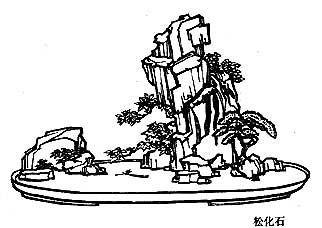Lun Yu 
 – The Analects of Confucius
– The Analects of Confucius
The Master discusses with his disciples and unveil his preoccupations with society. Tr. Legge (en), Lau (en) and Couvreur (fr).
Lunyu XIX. 12. (496)
Tsze-hsiâ's defence of his own graduated methos of teaching:– against Tsze-yû.
1. Tsze-yû said, "The disciples and followers of Tsze-hsiâ, in sprinkling and sweeping the ground, in answering and replying, in advancing and receding, are sufficiently accomplished. But these are only the branches of learning, and they are left ignorant of what is essential. – How can they be acknowledged as sufficiently taught?"
2. Tsze-hsiâ heard of the remark and said, "Alas! Yen Yû is wrong. According to the way of the superior man in teaching, what departments are there which he considers of prime importance, and delivers? what are there which he considers of secondary importance, and allows himself to be idle about? But as in the case of plants, which are assorted according to their classes, so he deals with his disciples. How can the way of a superior man be such as to make fools of any of them? Is it not the sage alone, who can unite in one the beginning and the consummation of learning?"
Legge XIX.12.
Tzu-yu said, 'The disciples and younger followers of Tzu-hsia can certainly cope with sweeping and cleaning, with responding to calls and replying to questions put to them, and with coming forward and withdrawing, but these are only details. On what is basic they are ignorant. What is one to do with them?'
When Tzu-hsia heard this, he said, 'Oh! how mistaken Yen Yu is! In the way of the gentleman, what is to be taught first and what is to be put last as being less urgent? The former is as clearly distinguish- able from the latter as grasses are from trees. It is futile to try to give such a false picture of the way of the gentleman. It is, perhaps, the sage alone who, having started something, will always see it through to the end.'
Lau [19:12]
Tzeu iou dit : « Les disciples de Tzeu hia savent très bien arroser et balayer la terre, répondre à ceux qui les appellent ou les interrogent, avancer ou se retirer. Mais ce sont des choses accessoires. Ils ignorent les plus importantes. Comment en est-il ainsi ? »
Ces paroles ayant été rapportées à Tzeu hia, il dit : « Ah ! Ien Iou1 est dans l'erreur. Dans la Voie de l'homme honorable, qu'est-il transmis d'abord ? Qu'est-il relégué au second plan ? [Les disciples] sont comme les plantes, dont chaque espèce exige une culture particulière. La Voie de l'homme honorable peut-elle être mensongère2 ? Pour respecter le début et la fin, est-il nécessaire d'être un saint ? »
Couvreur XIX.12.

The Analects of Confucius – Lun Yu XIX. 12. (496) – Chinese off/on – Français/English
Alias the Lunyu, the Lun Yü, the Analects, les Entretiens du maître avec ses disciples.
The Book of Odes, The Analects, Great Learning, Doctrine of the Mean, Three-characters book, The Book of Changes, The Way and its Power, 300 Tang Poems, The Art of War, Thirty-Six Strategies
Welcome, help, notes, introduction, table.
Index – Contact – Top























